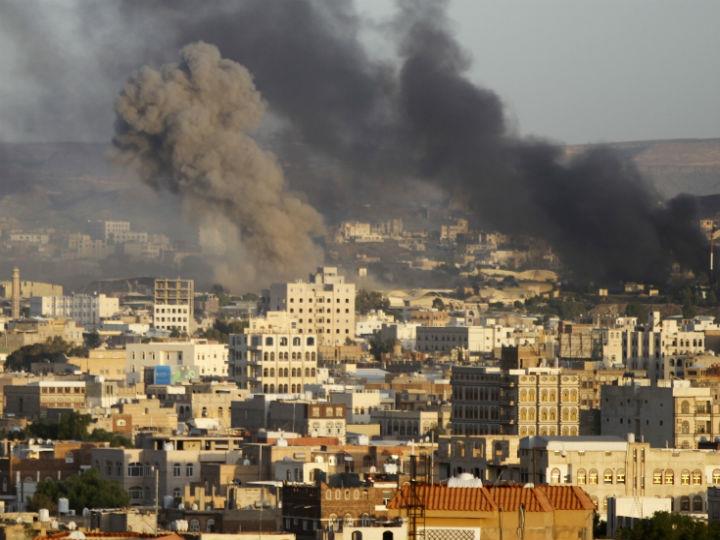by Alon Ben-Meir*
The proxy war that Saudi Arabia and Iran have been waging in Yemen for the past five years goes beyond the pale of human capacity for extreme cruelty and ruthlessness, and against the spirit and the letter of the Quran.
That war has thus far caused more than 100,000 deaths in Yemen. Out of a population of 30 million, 20 million are in desperate need of food, medicine and a steady supply of clean drinking water.
Over two million children are severely malnourished. Half of them are infected with cholera and many will perish as there is little or no chance of receiving medical treatment.
All that damage has been caused by the more than 6,000 coalition bombing raids that targeted Yemen’s civilian infrastructure.
An incredible irony
Now that Saudi Arabia has at long last declared a unilateral ceasefire, the ironies abound amidst all the pain and suffering.
None is bigger than this: Although Islam forbids the killing of innocent people, this command was never even considered by the Saudis as a reason to halt the fighting in Yemen.
What the Quran teaches
Surah 4:93 warns:
…whoever kills a believer intentionally – his recompense is Hell, wherein he will abide eternally, and Allah has become angry with him and has cursed him and has prepared for him a great punishment.
Ignoring a core tenet of the Quran, as the Saudis have done, is not merely blasphemy but is an outright defiance of religion itself. The Saudis have flagrantly violated religious commands and coolly pursued their crimes against humanity.
Instead, the Saudis continued to engage in a merciless war against Iran-backed Houthis. This war left Yemen lying in ruin while inflicting unfathomable pain and suffering on millions of innocent men, women and children.
Why the ceasefire now?
The question remains: Why did a country so deeply religious and so proud of being the birth place of Islam, a country which has assumed the leadership role of Sunni Muslims worldwide, wait five years to declare a ceasefire in an effort to end the world’s worst humanitarian crisis since World War II?
Sadly, the conflict in Yemen proves that the Saudis are much more concerned with everything except the teachings of the Quran.
Among the key reasons to opt for a ceasefire now are:
1. Saudi Arabia’s limited military capabilities
2. the tremendous strains the Yemen war is putting on the Saudi economy
3. the growing lack of financial resources due to the plunging price of oil, which is also preventing the much-needed diversification of the Saudi economy
4. the significant advances of the Houthis in key provinces in central Yemen
5. the growing international censure against the Saudis; and finally
6. the realization that the war is unwinnable, and that securing the border and distancing the Houthis from Iran assumed priority.
All of that is evidence that Islam’s teachings and moral obligations were simply not a part of the Saudi equation.
What the Saudis should have done
Instead of digging in in Yemen, the Saudis should have taken the lead to mitigate all civil wars in Muslim-majority countries (including Afghanistan, Turkey, Somalia, Sudan, Pakistan, Syria, Libya and Yemen).
This would have been all the more important as Muslim-majority countries represent 69% of all civil wars currently taking place globally.
But instead of leading the cause of stopping the killing of Muslims by Muslims, Saudi Arabia was leading the foray. It has wantonly and persistently waged a merciless war.
Of course, a significant part of the blame for that also goes to the U.S. and British governments, who are particularly prominent in providing the killing machines that allow the Saudis to slaughter tens of thousands of Yemeni civilians.
COVID 19 as a diplomatic opening
Yemen, which is already facing the worst humanitarian disaster in the world, has now recorded its first confirmed case of coronavirus.
Save the Children says the country has only about 700 intensive care unit beds, including 60 for children, and only 500 ventilators for a population of 30 million.
To be sure, after five years of devastating war, the country will be unable to cope if the virus spreads. The result would certainly be catastrophic.
For the Saudis however, the coronavirus pandemic has been a blessing in disguise, as in order to protect its homeland, it gave their government the excuse to declare a unilateral ceasefire.
COVID 19 created the conditions where all parties to the conflict, including the Houthis, who had developed their own peace plan, could agree on a ceasefire, without losing face.
The Saudis’ fear of the virus
The Saudis became deeply alarmed about the potential spread of the virus in Yemen, with which it shares a 1,100-mile-long border.
Millions of Yemenis live in overcrowded and unhygienic areas, which can infect hundreds of thousands in Saudi Arabia – already engulfed by the virus. Seeking a peace agreement with the Houthis became the only viable option to spare Saudi lives and resources.
What’s next?
Now that the Saudis have decided on a ceasefire, the kingdom must stop short of nothing to permanently end the war.
To that end, it must first extend the ceasefire beyond the two weeks it has initially offered, and then negotiate with the Houthis in earnest to reach a peace accord.
It would seem that under present circumstances the prospects are quite solid for all parties to the conflict, including Iran (which is also eager to cut its losses), to come to an agreement.
Conclusion
It is high time for the Saudi Arabia, the custodian of Sunni Islam, to stop making a mockery of the religion of the state — at the core of which is humanity, compassion and caring — and uphold the moral values which are the fundamental tenets of Islam.
*Senior Fellow at New York University’s Center for Global Affairs and Senior Fellow at the World Policy Institute [United States]
**first published in: www.theglobalist.com




 By: N. Peter Kramer
By: N. Peter Kramer
